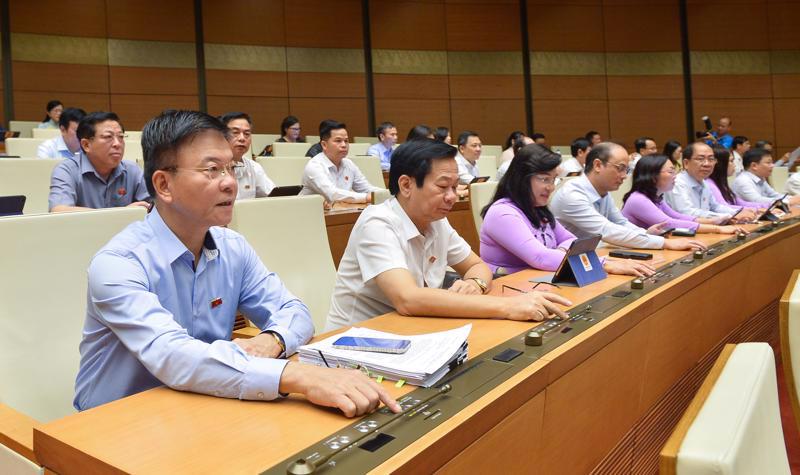On June 24, with 470 out of 475 deputies voting in favor, the National Assembly (NA) approved a law amending and supplementing a number of articles in the Law on Exit and Entry of Vietnamese Citizens and Law on Foreigners’ Entry into, Exit from, Transit through and Residence in Vietnam.
The duration of electronic visas (e-visas) will be extended from 30 days to 90 days, valid for multiple entry, while the duration of visas for temporary stays issued at border gates for those in the visa exemption category will increase from 15 days to 45 days.
Member of the NA Standing Committee and Chairman of the NA Committee for Defense and Security Le Tan previously presented a report explaining the changes.
After receiving comments from deputies, the NA Standing Committee reviewed and adjusted regulations on the duration of visas and changed the calculation of “months” by “days”, with a 12-month period counted as one year.
The NA Standing Committee said the law increases the duration of e-visas up to 90 days, valid for one or many entries, to meet the needs of international tourists and create favorable conditions for foreigners.
A multiple-entry visa is used to enter and exit Vietnam many times during the visa’s validity. Foreigners may wish to come to Vietnam to study, survey markets, or seek and promote investment, while some businesspeople may wish to visit many countries in the region and return to Vietnam to evaluate and compare the business and investment potential.
Raising the unilateral visa exemption period to 45 days, meanwhile, is in line with other countries in the region and improves Vietnam’s competitiveness in attracting tourists and providing more convenience.
Regarding the Law on Foreigners’ Entry into, Exit from, Transit through and Residence in Vietnam, in terms of immigration papers, some deputies suggested specifying other documents under the provisions in international treaties to which Vietnam is a signatory, while others suggested adding other information decided by the government to ensure flexibility in its legal application.









 Google translate
Google translate